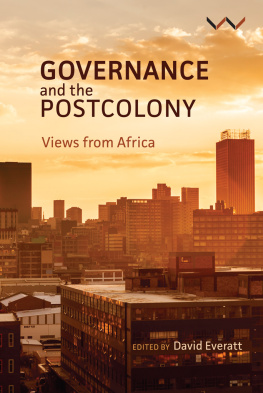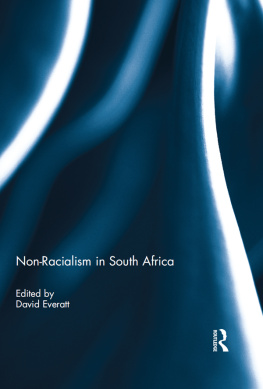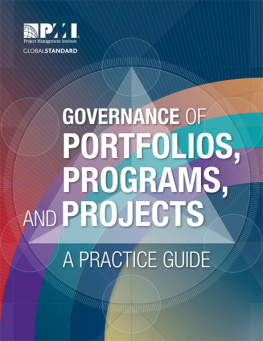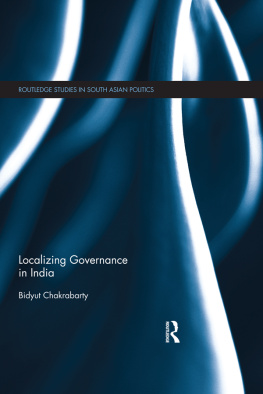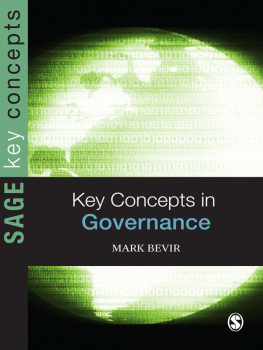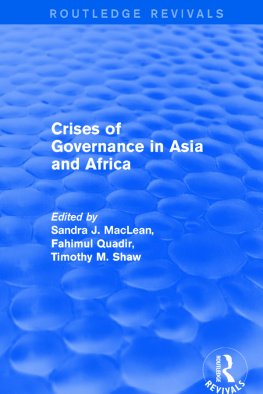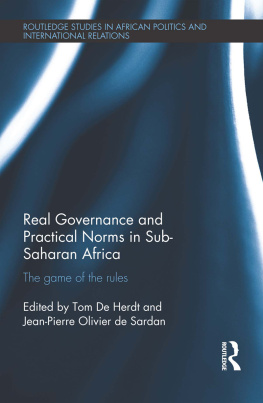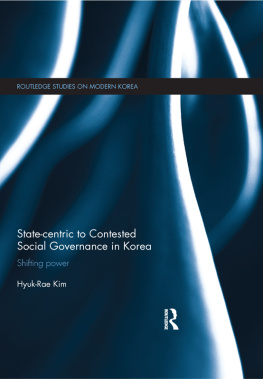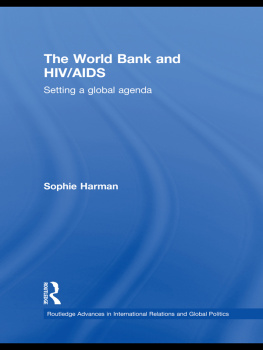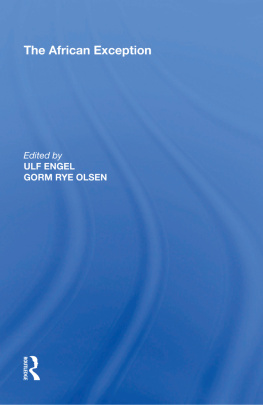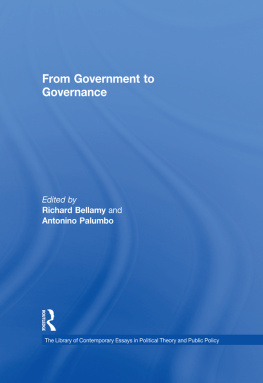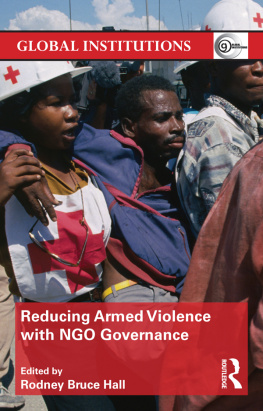GOVERNANCE AND THE POSTCOLONY
GOVERNANCE AND THE POSTCOLONY
VIEWS FROM AFRICA
EDITED BY
DAVID EVERATT
Published in South Africa by:
Wits University Press
1 Jan Smuts Avenue
Johannesburg 2001
www.witspress.co.za
Compilation Editor 2019
Chapters Individual contributors 2019
Published edition Wits University Press 2019
Images and figures Copyright holders
First published 2019
http://dx.doi.org.10.18772/22019083443
978-1-77614-344-3 (Paperback)
978-1-77614-345-0 (Web PDF)
978-1-77614-346-7 (EPUB)
978-1-77614-347-4 (Mobi)
All rights reserved. No part of this publication may be reproduced, stored in a retrieval system, or transmitted in any form or by any means, electronic, mechanical, photocopying, recording or otherwise, without the written permission of the publisher, except in accordance with the provisions of the Copyright Act, Act 98 of 1978.
All images remain the property of the copyright holders. The publishers gratefully acknowledge the publishers, institutions and individuals referenced in captions for the use of images. Every effort has been made to locate the original copyright holders of the images reproduced here; please contact Wits University Press in case of any omissions or errors.
Project manager: Catherine Damerell
Copyeditor: Catherine Damerell
Proofreader: Lisa Compton
Indexer: Marlene Burger
Cover design: Hothouse
Typesetter: Newgen
Typeset in 10 point Minion Pro
CONTENTS
David Everatt
David Everatt
Salim Latib
Pundy Pillay
Patrick Bond
Caryn Abrahams
Anthoni van Nieuwkerk and Bongiwe Ngcobo Mphahlele
Susan Booysen
Mike Muller
William Gumede
Chelete Monyane
Kirti Menon and Jody Cedras
Darlene Miller, Nomalanga Mkhize, Rebecca Pointer and Babalwa Magoqwana
David Everatt
FIGURES AND TABLES
CHAPTER 2
CHAPTER 3
CHAPTER 6
CHAPTER 7
CHAPTER 11
CHAPTER 13
ABBREVIATIONS AND ACRONYMS
| ANC | African National Congress |
| ANCYL | African National Congress Youth League |
| APSA | African Peace and Security Architecture |
| APRM | African Peer Review Mechanism |
| AU | African Union |
| BLF | Black First Land First |
| BRICS | Brazil-Russia-India-China-South Africa network |
| CCSA | Constitutional Court of South Africa |
| CoGTA | (Department of) Cooperative Governance and Traditional Affairs |
| Cope | Congress of the People |
| Cosas | Congress of South African Students |
| Cosatu | Congress of South African Trade Unions |
| DA | Democratic Alliance |
| ECOWAS | Economic Community of West African States |
| EFF | Economic Freedom Fighters |
| EVD | Ebola virus disease |
| GCRO | Gauteng City-Region Observatory |
| GDP | gross domestic product |
| GLS | Green Leadership Schools |
| Gear | Growth, Employment and Redistribution |
| HDI | Human Development Index |
| IDP | Integrated Development Plan |
| ILO | International Labour Organization |
| IMF | International Monetary Fund |
| MDG | Millennium Development Goals |
| MP | member of parliament |
| NCOP | National Council of Provinces |
| NDP | National Development Plan |
| NEPAD | New Partnership for Africas Development |
| NGO | non-governmental organisation |
| NIE | new institutional economics |
| NMF | Nelson Mandela Foundation |
| NSFAS | National Student Financial Aid Scheme |
| OAU | Organisation of African Unity |
| OECD | Organisation for Economic Development and Cooperation |
| Outa | Opposition to Urban Tolling Alliance |
| PAC | Pan Africanist Congress of Azania |
| PAP | Pan-African Parliament |
| PHEIC | Public Health Emergency of International Concern |
| Posib | Protection of State Information Bill |
| PPP | purchasing power parity |
| RDP | Reconstruction and Development Programme |
| REC | regional economic community |
| RM | regional mechanism |
| SACP | South African Communist Party |
| Sadtu | South African Democratic Teachers Union |
| SALGA | South African Local Government Association |
| Sanral | South African National Roads Agency (SOC) Limited |
| SCA | Supreme Court of Appeal |
| SHD | sustainable human development |
| TAC | Treatment Action Campaign |
| UN | United Nations |
| UNDP | United Nations Development Programme |
| UNESCO | United Nations Educational, Scientific and Cultural Organization |
| WAHO | West African Health Organization |
| WCED | World Commission on Environment and Development |
| WHO | World Health Organization |
INTRODUCTION
Governance in the Postcolony: Time for a rethink?
David Everatt
POWER, CONTEXT AND APPLICATION
N otions of governance have spread globally across disciplines and sectors like an ugly but undiagnosed rash: governance pops up everywhere but is commonly undefined, and while content (or diagnosis) is assumed, it is rarely articulated. These notions range from theories such as network governance, regulatory governance, multi-level governance, adaptive governance, and so on, to sector-specific applications including internet governance, multiple iterations of corporate governance, humanitarian governance, non-profit governance, and more. But too often it is a label, almost an incantation, without substantive definition or clarity. It may be that multiple applications are an attempt to provide content to a catch-all category, but then the challenges of context, power and application all apply. Seen from the global south, governance is most commonly applied as a simplistic, normative imposition; its tools are in place to decide on reward and punishment, flowing from a narrow, a-contextual and ahistorical application. It is used to delineate the good from the bad, to call to order, or to call for order and rules (to be written or to be obeyed). The problem is not the lack of a single, perfect definition although some greater definitional precision would certainly help but the failure to locate governance in relation to power, context and application.

